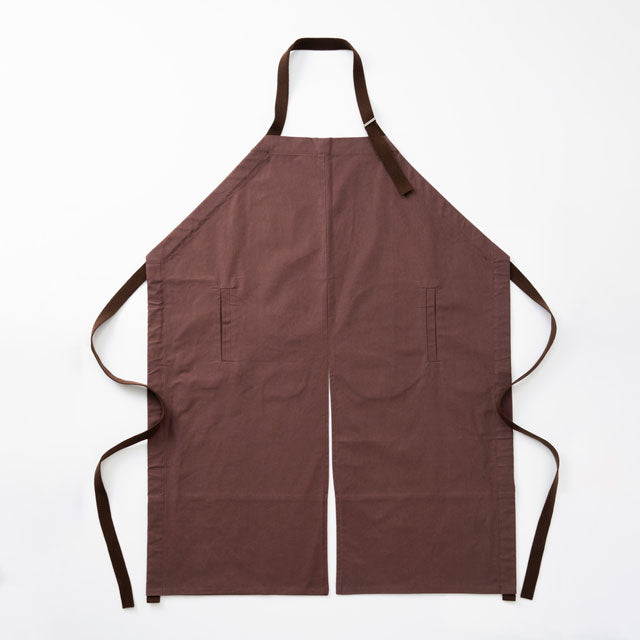
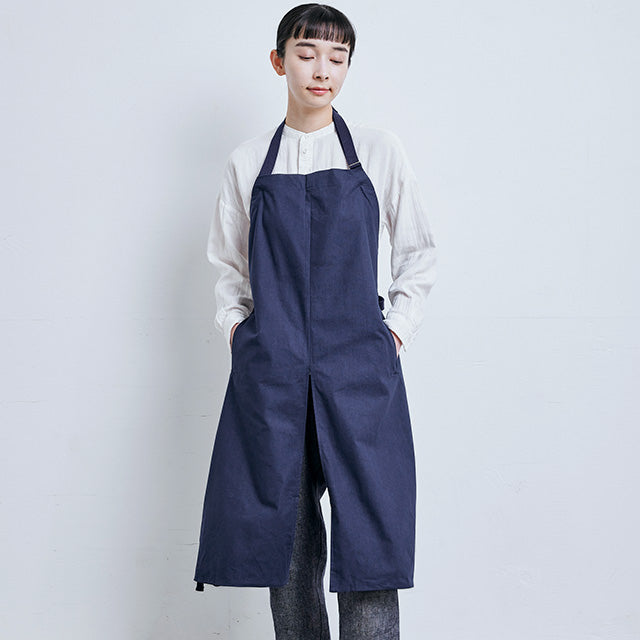
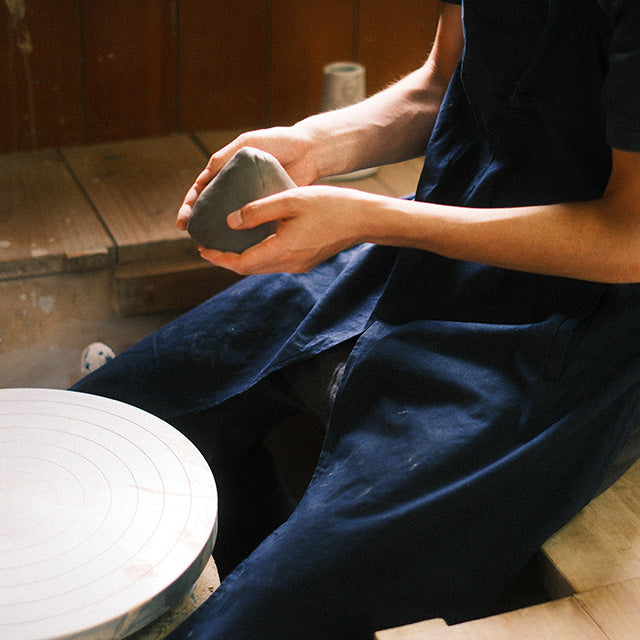
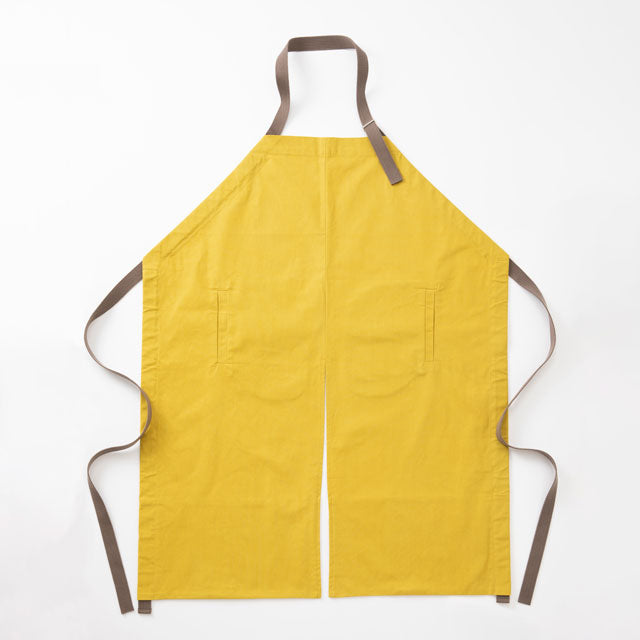
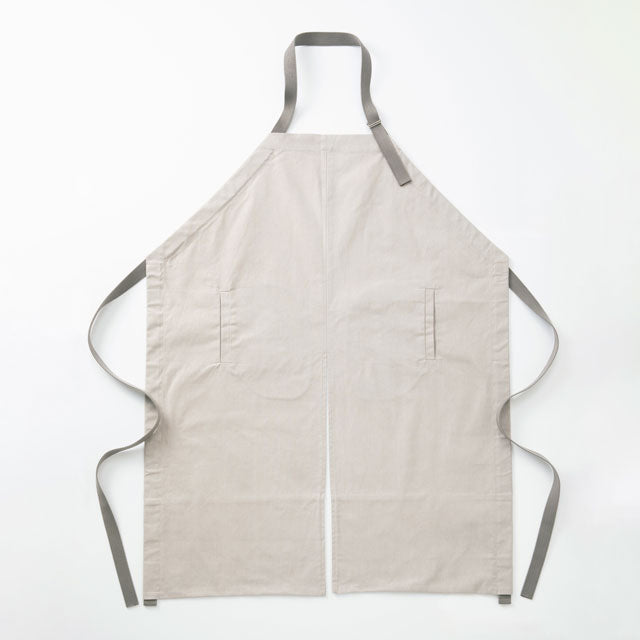
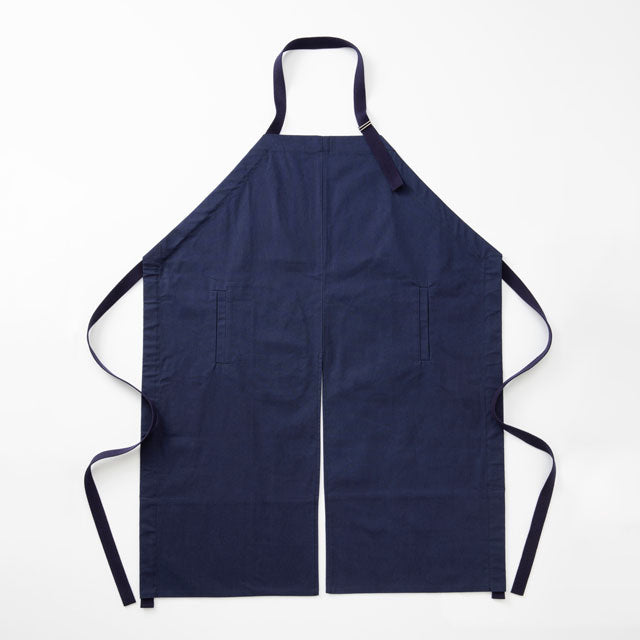
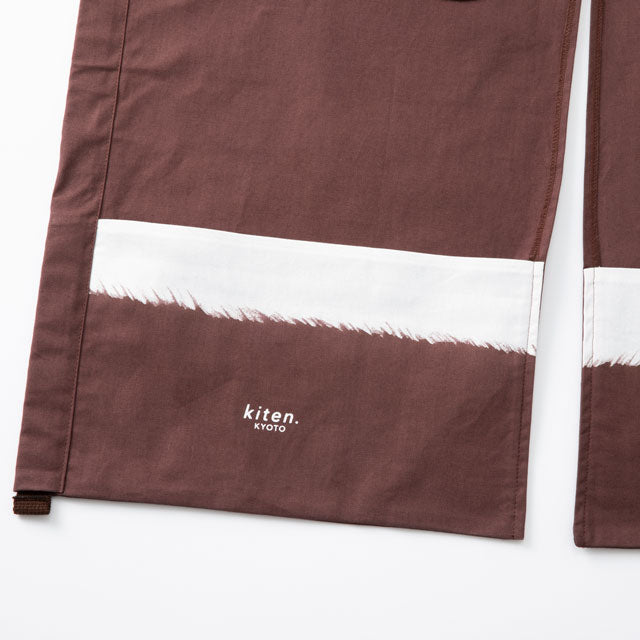
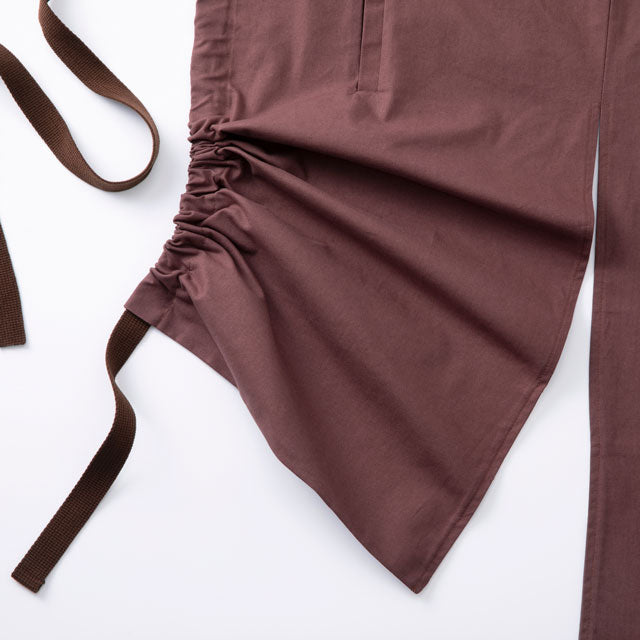
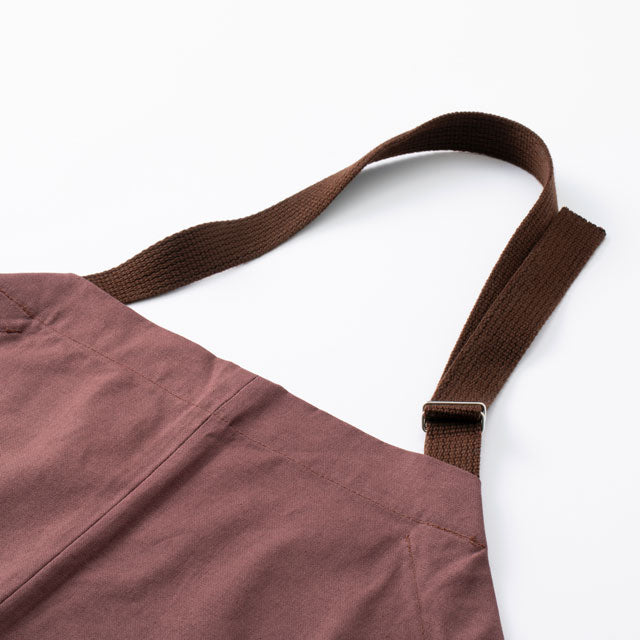
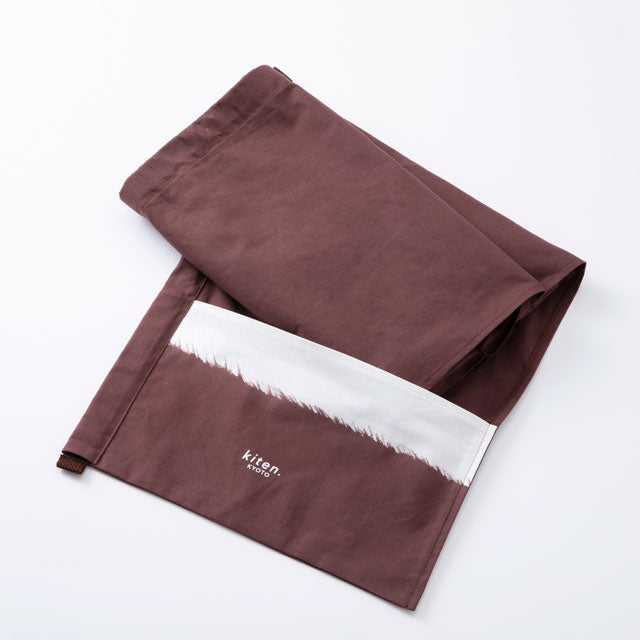
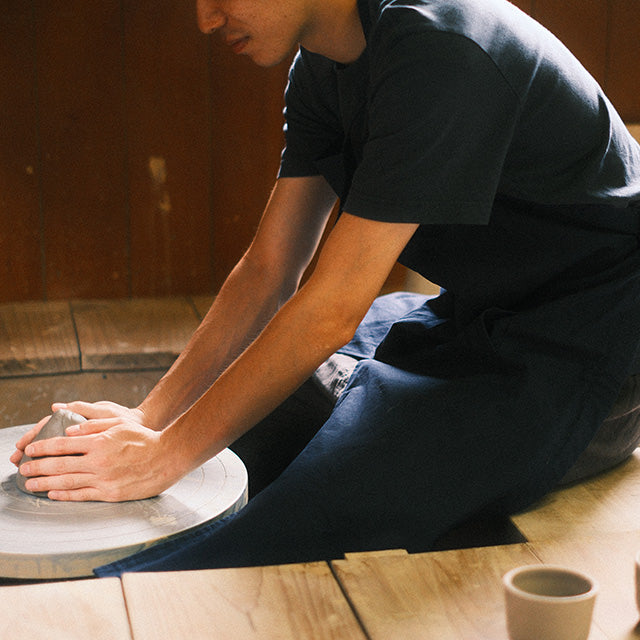
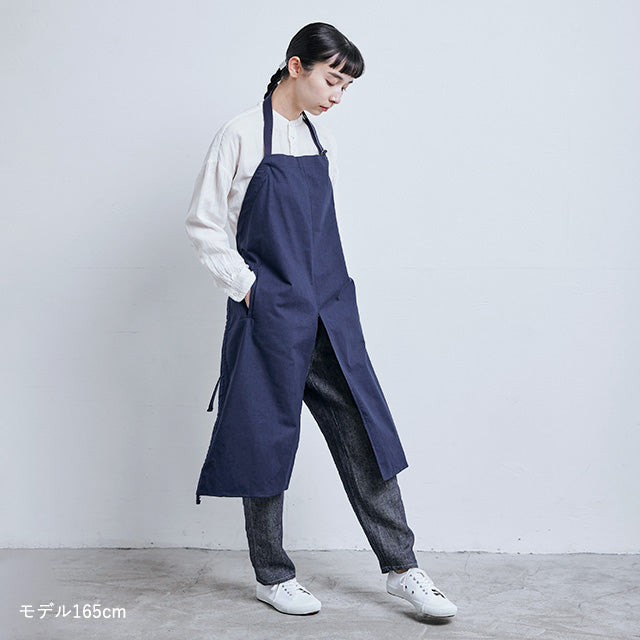
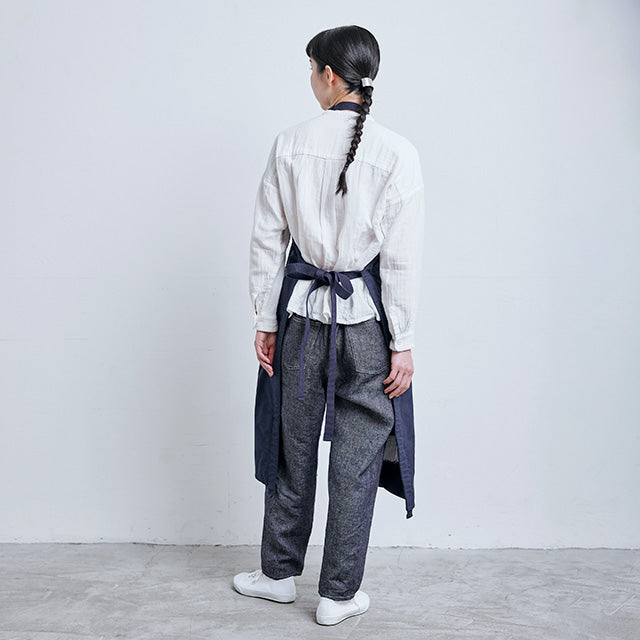
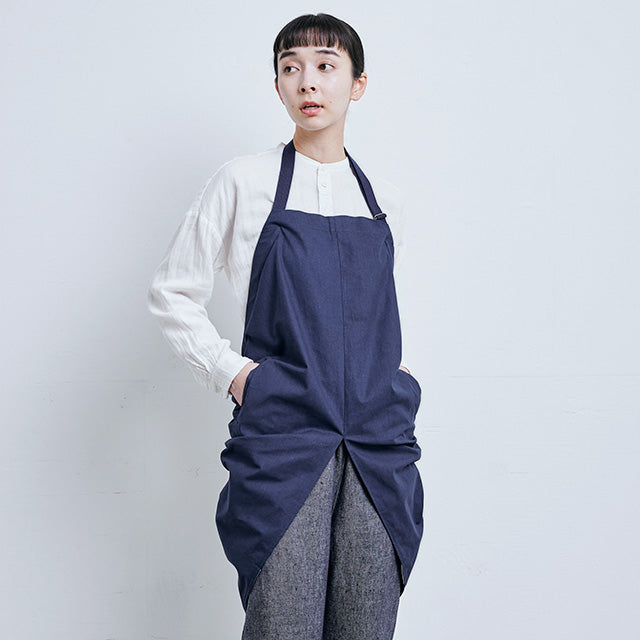
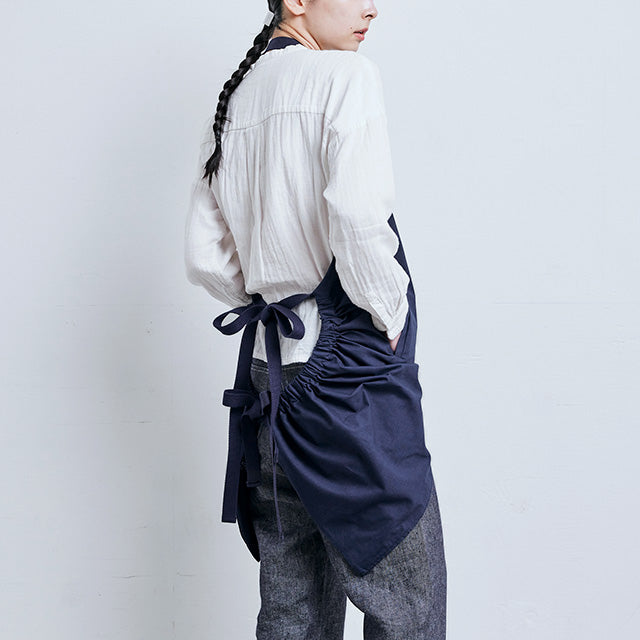
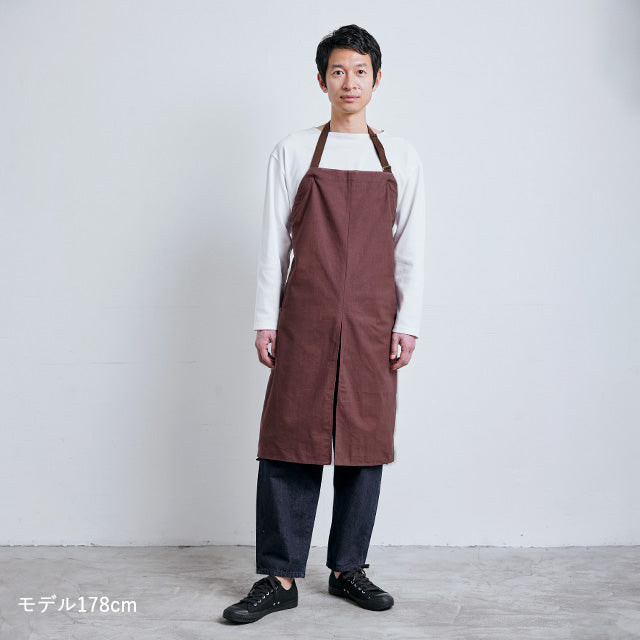
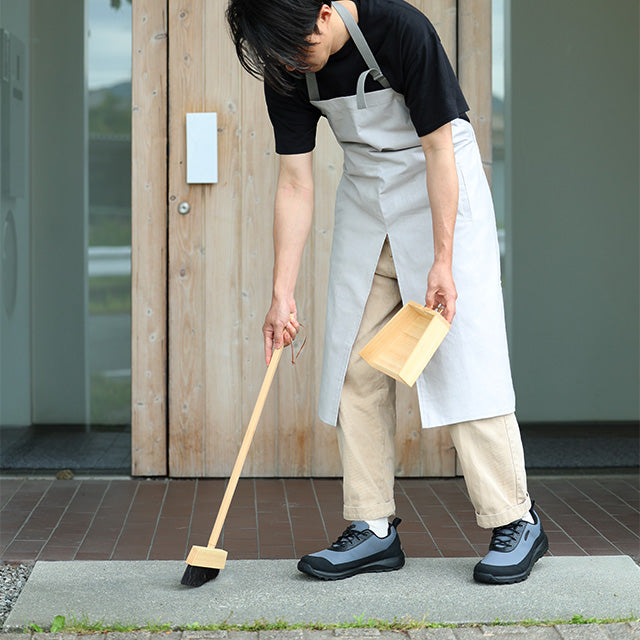
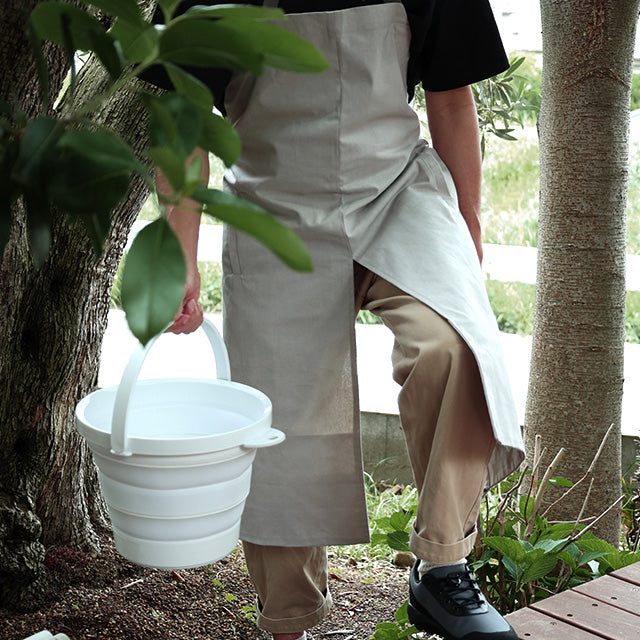
kiten.kyoto MAKU.
- Regular price
- $262.00
- Sale price
- $262.00
- Regular price
-
A kiten.kyoto work apron that showcases Kyoto's brush dyeing.
This 100% cotton work apron is made by kiten.kyoto, a workwear brand that utilises the traditional techniques for flags, banners, and noren that support Kyoto's townspeople cultu ...
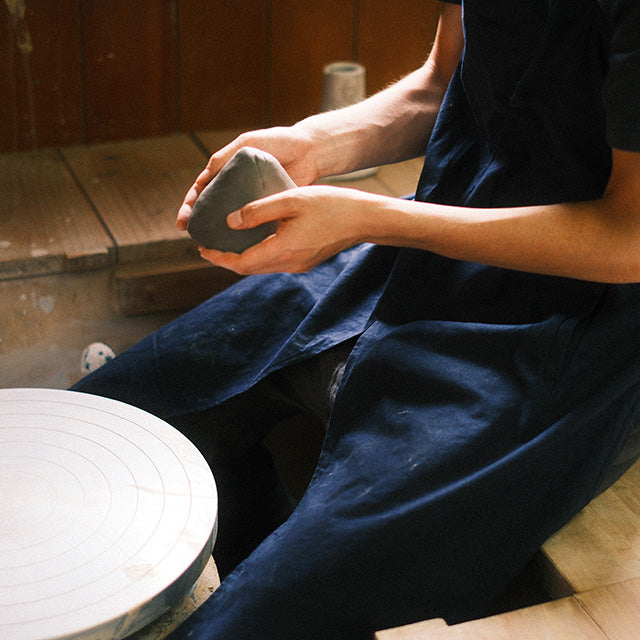
A work apron from kiten.kyoto that highlights Kyoto-style dyeing
This 100% cotton work apron is made by kiten.kyoto, a workwear brand that makes use of the techniques of flags, banners, and noren curtains that support Kyoto's townspeople culture. It features a unique shape based on a curtain or noren curtain motif and deep colours created by the draw dyeing method.
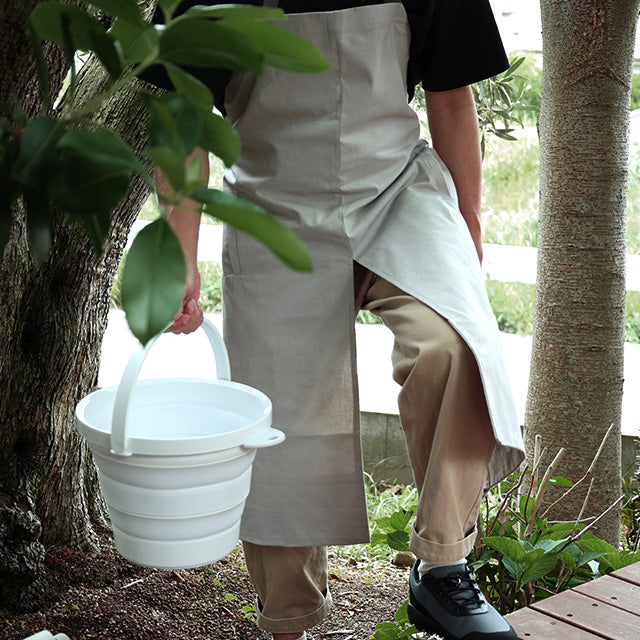
Durable, flexible fabric and unique shape for easy movement
The main body is made of 100% cotton "Juban Tenjiku" fabric, which is thick yet light and flexible. It is used for happi coats and noren curtains, and is durable enough to withstand outdoor wind and rain, and is also resistant to friction and washing. The hem has slits reminiscent of noren curtains, allowing for smooth movement of the legs. There is a pocket on the back, and it can be folded up to make it compact. You can also change the shape by tightening the sides of the hem. This is based on the motif of a "curtain" used at temples and shrines, which is tightened and pulled up halfway. It is useful not only for cooking in the kitchen and house cleaning, but also for a wide range of outdoor activities such as camping and gardening.
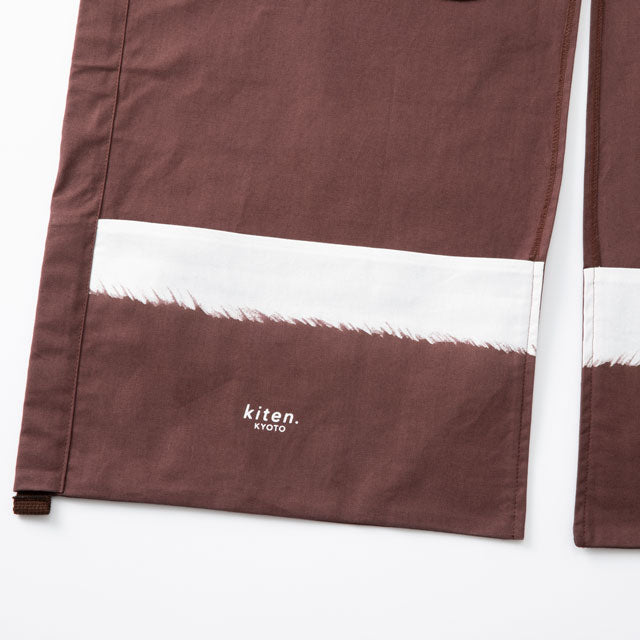
Traditional colors dyed by hand using the artisan's "hikizome" technique, and a playful design on the reverse side
At first glance, the colors may look modern, but they are traditional colors dyed using the traditional technique of "hikizome," which is often used for noren curtains, curtains, and rolls of kimono fabric. Craftsmen dye each piece by hand, using traditional methods. Because it is dyed from both sides, it features deep, vivid colors on both sides. Indigo (AI): A calm, deep blue color. This traditional color is also familiar in happi coats and noren curtains. Kihada: A bright yellow-green color. This color has been around since the Nara period, and was used not only for fabric but also as a dye for paper. Hiwada: A dark brown with a yellowish tint. In the past, roofs were covered with cypress bark, so this color was familiar in people's lives. Tin (SUZU): A light gray color close to silver. It is also known by other names such as silver gray and dull gray, and tin color is used to express luxury. In addition, on the back of the hem, there is a "kasuri" pattern that deliberately shows the brush marks, along with the kiten.kyoto logo. It's a playful design inspired by the Japanese aesthetic of "uramasari," which deliberately places the highlights on the back.
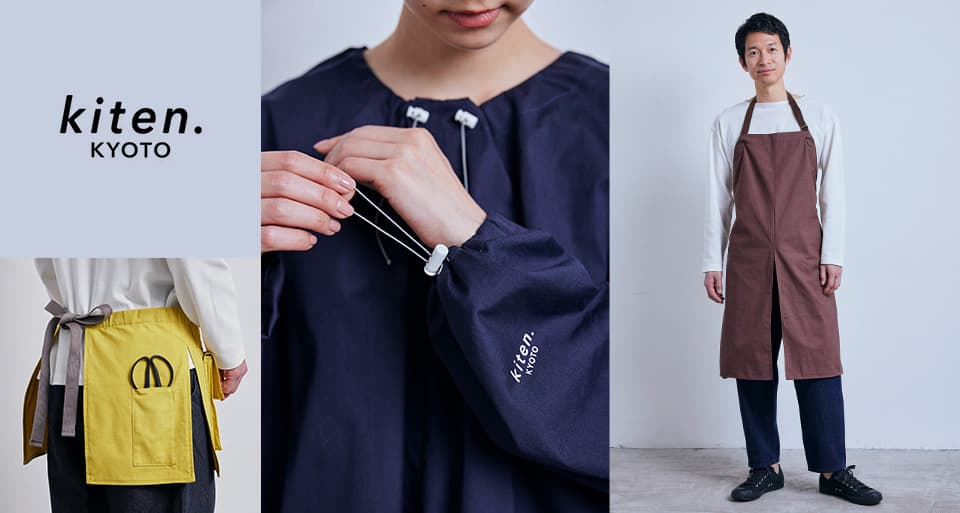
Modern workwear proposed by Kato Kenkiten, which brings together Kyoto craftsmanship to create a sense of pride and individuality
The company that makes these products is Kato Takeshi Hataten, which was founded in Kyoto in 1950. They are producers, so to speak, who work with various craftsmen and workshops to create completely custom-made products that represent the pride and uniqueness of shops, temples, shrines, and towns, such as flags, curtains, noren, happi coats, hanten coats, and banners. The "kiten.kyoto" brand was born in 2023 to propose modern workwear, inspired by the coolness of townspeople wearing happi coats and hanten coats. The brand name contains the meaning of supporting someone's serious work ("Yori" and "So" = kiten) and supporting the starting point (= kiten). In Kyoto, where townspeople culture thrives, the brand is unique to Kato Takeshi Hataten, which has continued to make cool products without any compromise.
More information
Japanese craft history
A brand by Kato Kenki-ten, which has continued creating completely custom-made products such as flags, curtains, noren, happi coats and hanten jackets, and banners since its founding in 1950 in Kyoto, where the culture of townspeople lives on.
Delivery & returns
Free international shipping available on qualifying orders. Global shipping from Nara, Japan via DHL. Returns accepted within 14 days of delivery for unused items in original packaging (return shipping at customer's expense).
Product Reviews
You May Also Like
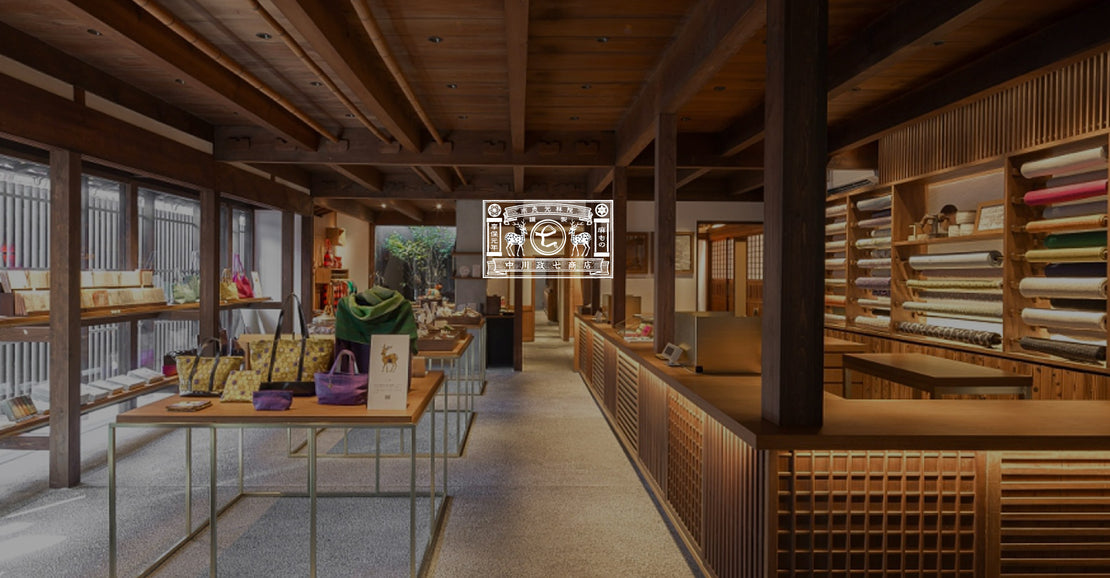
Our Vision is "Revitalize Japanese Kogei"
For 300 years, Nakagawa has supported Japanese heritage craft houses across the nation, committed to revitalizing Japanese Kogei for another century to come.
